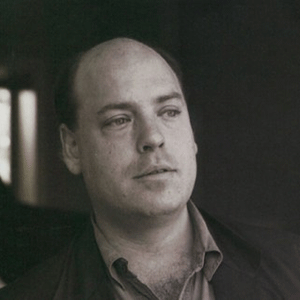In Memoriam — Sanford Sylvan (1953-2019)
By Jonathan Blumhofer

Sanford Sylvan — muse, performer, and teacher.
To say that baritone Sanford Sylvan, who died unexpectedly on Tuesday at sixty-five, was a once-in-a-generation singer is not an overstatement. He was as thoughtful and musical an interpreter as they come, his flexible voice marked by a cool, directly-expressive tone, impeccable intonation, and supremely elegant diction. Like Elisabeth Schwarzkopf’s, Dietrich Fischer-Dieskau’s, or Lorraine Hunt Lieberson’s, Sylvan’s distinct timbre was a sign of his uniqueness, instantly recognizable whether he was singing Mozart or John Adams.
Though primarily associated with early music and contemporary fare, Sylvan’s impact on the field was immense and broad, be that as muse, performer, or teacher.
For many, he will always be associated with the music of Adams, having created the part of Chou En-lai for the 1987 opera Nixon in China and, four years later, singing the title role in the highly-controversial The Death of Klinghoffer. In between, Adams set Walt Whitman’s The Wound Dresser expressly for Sylvan; their 1989 recording of it was nominated for a Grammy.
As persuasive a new-music advocate as he was (he also sang pieces by living composers as diverse as Christopher Rouse, John Harbison, and Philip Glass), Sylvan was just as accomplished an interpreter of Bach and Mozart, starring in Peter Sellars’ famous 1980s updatings of the Mozart-Da Ponte trilogy and establishing himself, after moving to Boston in 1977, as an integral part of the Craig Smith’s Emmanuel Music.
As a result of that early decampment from New York, local audiences had the best view of Sylvan’s artistry of perhaps any in the world. The baritone spent three decades living, teaching, and presenting concerts and recitals (often with pianist David Breitman) at various Boston locales, leaving in 2007 to teach at Montreal’s McGill University. (More recently he returned to New York; at his death, Sylvan was head of the vocal department at the Juilliard School.) In fact, one of the first concerts I heard after moving to New England in the fall of 2004 featured Sylvan with the Boston Modern Orchestra Project, in which he sang, with electrifying energy, the vigorous solo part in Charles Fussell’s Wilde Symphony.
Though filled with high-profile engagements, Sylvan’s career wasn’t a particularly flashy one nor was his personality self-aggrandizing. Quite the opposite: in my handful of interactions with him as a graduate student at the Boston Conservatory, where Sylvan was then on the faculty, he was unfailingly humble and courteous. And his reputation as a warm, considerate, thoughtful man preceded him pretty much wherever he went.
Indeed, Sylvan was a singular guy and his career – quality, scrupulously-prepared (but never stilted) performances alternating with sometimes long breaks for teaching, study, and meditation – one-of-a-kind. “You don’t get rich singing the St. Matthew Passion,” Sylvan told an interviewer in 2011, explaining his professional choices. “You just get happy.”
Well, hearing Sylvan sing did make one rich: spiritually, emotionally, musically. And, more often than not, it made you happy, too. That makes the suddenness of his death — still in the prime of life with, presumably, much left to give — all the more heartbreaking.
Below are a handful of highlights from Sylvan’s indelible career:
Adams, Nixon in China
Adams, The Wound Dresser
Adams, The Death of Klinghoffer
Bach, Ich habe genug
Barber, Hermit Songs: The Monk and His Cat
Mozart, Le Nozze di Figaro
Schubert, Die schöne Müllerin, Des Baches Wiegenlied
Jonathan Blumhofer is a composer and violist who has been active in the greater Boston area since 2004. His music has received numerous awards and been performed by various ensembles, including the American Composers Orchestra, Kiev Philharmonic, Camerata Chicago, Xanthos Ensemble, and Juventas New Music Group. Since receiving his doctorate from Boston University in 2010, Jon has taught at Clark University, Worcester Polytechnic Institute, and online for the University of Phoenix, in addition to writing music criticism for the Worcester Telegram & Gazette.

Tragic, but we were lucky to have him in our midst for some many memorable performances.
What is remarkable about the hundreds of posts I’ve read about Sandy is how each mentions what a kind, generous, humble person he was, or as Jonathan put it, warm, considerate, and thoughtful. No one forgot an encounter, or a concert, with Sandy. I still vividly recall playing harp as he sang Barber and Ravel some thirty five years ago. His musicianship was so honest, so direct. To know Sandy was to rejoice in him and his music-making.
Anyone who was lucky enough to know or to hear Sandy used the adjectives kind, generous, thoughtful. He understood that music making is a privilege, and transmitted this in every performance. We played a bunch of (harp and voice) concerts together about 35 years ago, and these were among the highlights of my entire performing career. What a great human being. What a colossal loss.